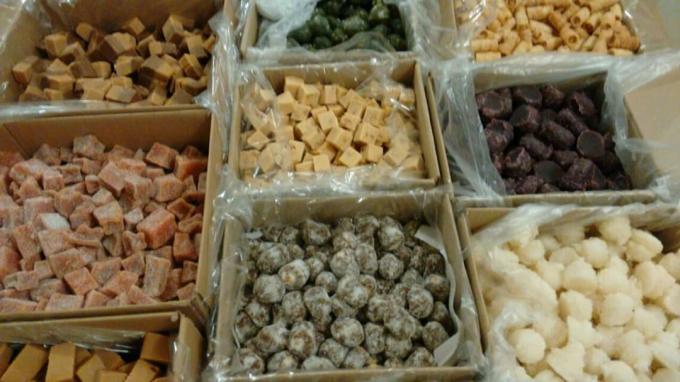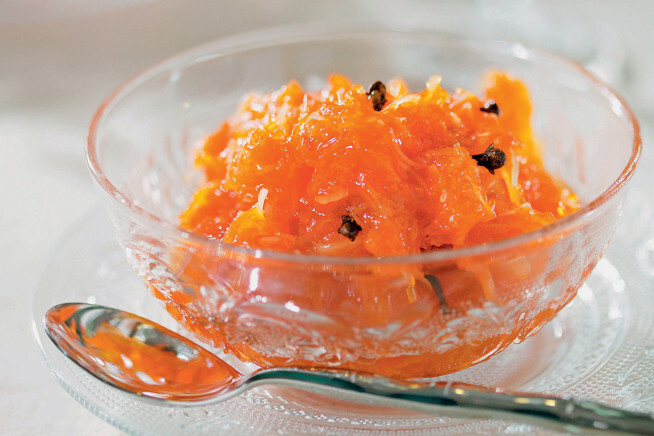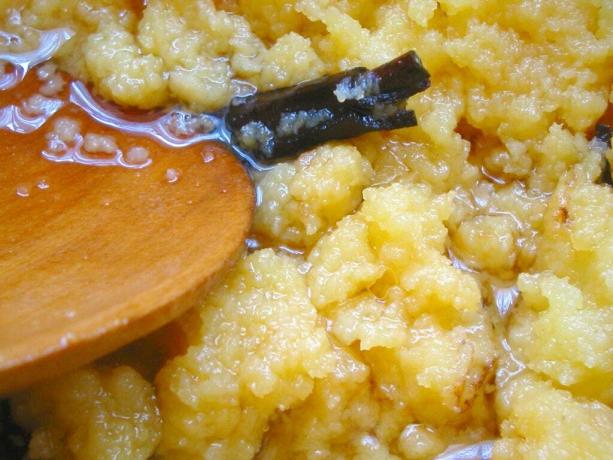
Cheese bread, chicken with okra, sweets and cabbage-based preparations. Just by hearing the name of the dishes we are immediately transported to the historic streets of Minas Gerais.
More than knowing the beautiful constructions of the 13th century, traveling through the cities of Minas Gerais is rescuing the memories of the Gold Cycle, the journeys of the tropeiros and the first expeditions with the intention of exploring the Brazilian territory.
see more
Brazilian olive oils receive awards and international recognition;…
Fake News! 10 Lies Generation X Grew Up Believing—and Maybe…
Ouro Preto, Diamantina, Mariana, São João Del Rei, Paracatu and Tiradentes are among the most sought after historical destinations by Brazilian and foreign tourists. An essential part of the local culture, the typical dishes from Minas Gerais are an invitation to taste a little of the history and customs of the state.

It is certainly one of the trademarks of Minas Gerais. The delicacy is found from the simplest snack bars, to the entrances of the most refined restaurants. And miners defend the recipe tooth and nail! According to them, there is no cheese bread like Minas and tasting it directly at its root is a unique experience. And they're right, you can't refuse a warm cheese bread with freshly brewed coffee. For those who don't know, it's a baked dumpling, based on manioc flour and eggs, topped with cheese.

But, attention! It can't be just any chicken. To guarantee the unique flavor of the original dish, it is necessary to prepare it with country chicken, one of the classic ingredients of the state. The food, which is popular in various parts of Minas Gerais, boils down to a bird stew with okra. The latter, rejected by many people because of its texture, originates in Africa and was brought to Brazil by enslaved Africans.

Following the lines of free-range chicken, another dish that is very popular in Minas is chicken with brown sauce. Despite being part of traditional cuisine, many people twist their noses at it. That's because the sauce in the recipe is made with the blood of the bird itself. The chickens are slaughtered with a cut in the neck and the blood is collected in a bowl, where vinegar is mixed so that it does not clot. This is how the brown sauce is made, where the chicken will be cooked.

It is one of the most common dishes on Sunday lunches in Minas Gerais. In it, cooked and seasoned black or purple beans are beaten in a blender or by hand. Then it goes back to the pan, where the cassava or corn flour will be mixed until it reaches a pasty consistency. Traditionally it is served in clay dishes or pots, where it is decorated with green smell, pork rinds and boiled eggs.

Despite being present in several Brazilian states, people from Minas Gerais have an extremely affectionate relationship with tropeiro beans. It is a heritage from the colonial period, when the tropeiros made long journeys and cooked beans, they added meat, eggs and cassava flour. At Estádio do Mineirão, in Belo Horizonte, fans do not like innovations and prefer to enjoy the delicacy in the traditional way. So much so that for over 30 years the same cooks have dedicated themselves to preparing the food sold at Gigante da Pampulha.

It is impossible to go to Minas Gerais and not try this dish that is the face of the state. The piglet pururuca is among the most ordered in restaurants. Its way of preparation gives it a unique texture, difficult to find elsewhere. The suckling pig is seasoned and roasted, skin and all. Then the surface is cooled with ice and then extremely hot oil is poured. The procedure is repeated until the skin becomes blistered and very crispy.

Angu, a very simple dish, serves as an accompaniment to several dishes, especially those with chicken. Of African origin, it takes few ingredients and can be made either with beaten and strained green corn, or with corn meal cooked with water and seasonings.

In addition to being the base for many dishes, kale is also a very traditional side dish. In the regional preparation, the leaves are cut very thinly and sautéed in lard, garlic and onion. In more modern versions, cubes of bacon are added.

Traditional from the region of Ouro Preto, the kale bamba is made from cornmeal. Its origin is linked to the times of slavery. It is believed that the slaves used the leftover cornmeal porridge from the main house, and to make it more satiety, they increased it with shredded cabbage, pig's feet and ears. Even today, the shape of the kale is one of the items that characterize a legitimate bambá. The difference is that, over time, meat has been replaced by sausage.

Another dish prepared with simpler cuts of meat is the swamped cow. Bovine ribs and fat were cooked for a few hours and then cassava was added. Also of colonial origin, it is yet another delicacy that used little, if any, ingredients enjoyed by the richest. Even today the recipe is much appreciated, however, over time, better cuts have come to be used.

Very characteristic of the typical foods of Minas Gerais, ora-pro-nobis is a vegetable used in stews, salads, soups, pies and omelettes. However, its most traditional preparation is cooked, along with free-range chicken. In the city of Sabará, there is also an annual event called Festival de Oro-pro-nobis and presents several dishes with vegetables. As a curiosity, the name of the plant comes from Latin, and means “pray for us”.

After so many savory delicacies, it is necessary to round off the meal with a good dessert. In Minas Gerais, there is no shortage of options. There are sweets that please all palates. Made with milk or fruit, they are present in all regions, delighting locals and tourists alike.

Plain, with fruit or cheese, creamy, in pieces or in the form of a straw, as a filling for cakes and churros, and also as a base for ice cream and puddings. It doesn't matter how the dulce de leche is consumed, what really matters is that the best in the world is from Minas Gerais. Proof of this is the award-winning dulce de leche de Viçosa. Even today, in many cities in Minas Gerais, it is prepared in the traditional way: milk and sugar boiling in copper pots.

Prepared in many versions, always with fresh ingredients, the title of “creator of pumpkin jam” is disputed by three states, in addition to Minas Gerais, Rio de Janeiro and Rio Grande do Sul. Anyway, it is found practically in all mining towns. In compote, candied, in pieces, balls, pure, with coconut or cloves are the most common preparations.

Very simple to prepare, the sweet takes only milk, eggs, sugar, lemon peel, cloves and cinnamon. All of them are taken to the fire to cook and after cold they are taken to the refrigerator. One of the traditional sweets of Minas Gerais cuisine is ready.

Last, but not least, is the guava smudge. The sweet is typical of the cities of Ponte Nova and São Bartolomeu. In both, it is easy to find traditional confectioners who prepare guava jam in the famous copper pots.
You may also be interested:
